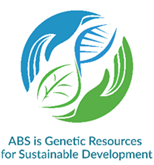Jordan and the Nagoya Protocol
Jordan signed the Nagoya Protocol the tenth of January 2012. The instrument for ratification was accepted twelve October 2014 when the Protocol came into force. The Section Nagoya Protocol gives more information on the implementation of the Protocol.
 GEF/UNDP: Strengthening human resources, legal frameworks and institutional capacities to implement the Nagoya Protocol
GEF/UNDP: Strengthening human resources, legal frameworks and institutional capacities to implement the Nagoya Protocol

UNDP/GEF Project: Strengthening human resources, legal frameworks, and institutional capacities to implement the Nagoya Protocol, is a project that specifically aims at assisting countries in the development and strengthening of their national ABS frameworks, human resources, and administrative capabilities to implement the Nagoya Protocol. The project seeks to achieve this by:
- Strengthening the legal, policy and institutional capacity to develop national ABS framework;
- Building trust between users and providers of genetic resources to facilitate the identification of bio-discovery efforts; and
- Strengthening the capacity of local communities to contribute to the implementation of the Nagoya Protocol.
The project is being implemented in twenty-four countries (Albania, Belarus, Colombia, Comoros, Dominican Republic, Ecuador, Egypt, Ethiopia, Honduras, India, Jordan, Kazakhstan, Kenya, Mongolia, Myanmar, Panama, Rwanda, Samoa, Seychelles, South Africa, Sudan, Tajikistan, Uruguay) Funded by GEF with a total budget of 12 million dollars.
